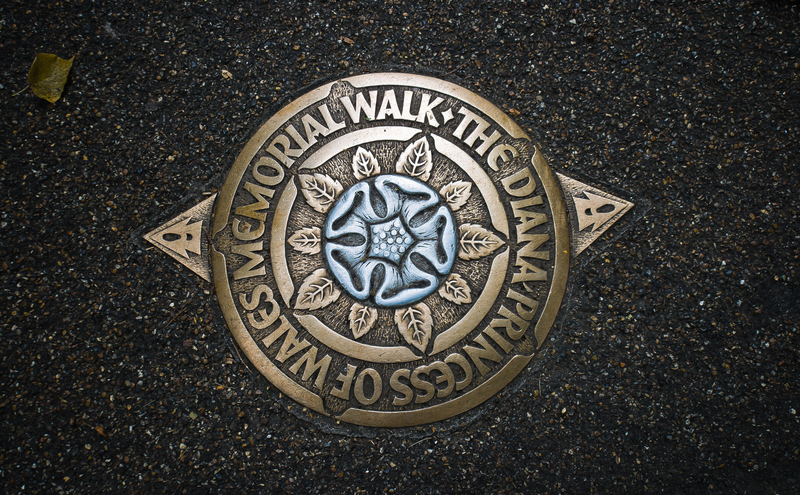Ultimate Guide: 3 Key Tips for Weed Control
Posted on 13/06/2025
Ultimate Guide: 3 Key Tips for Weed Control
Weeds are the unwelcome guests in every gardener's paradise. Whether you have a lush vegetable patch, a manicured lawn, or a cozy backyard, keeping weeds at bay is essential for a thriving landscape. In this ultimate guide, we'll share 3 key tips for effective weed control, ensuring your plants get the nutrients, water, and sunlight they deserve. Read on to discover weed management techniques that work for every type of gardener.
Why Is Weed Control Important?
Weed control is more than just an aesthetic concern. Left unchecked, weeds compete with desirable plants for vital resources, harbor pests and diseases, and even create fire hazards in dry climates. A well-maintained, weed-free garden is healthier, more productive, and easier to care for in the long run.
- Improved plant health: Weeds compete for nutrients, water, and sunlight, reducing the vigor of your desired plants.
- Enhanced appearance: A clean, weed-free landscape is more attractive and inviting.
- Pest and disease prevention: Many weeds are hosts for harmful insects and plant diseases.
- Reduced maintenance: Consistent weed control minimizes labor and cost over time.
Understanding Weeds: Know Your Enemy
To start tackling the problem effectively, it's important to understand different types of weeds. There are three main categories:
- Annual weeds (e.g., crabgrass, chickweed): Complete their life cycle in a single year and spread quickly by seed.
- Biennial weeds (e.g., wild carrot, bull thistle): Take two years to mature, with leafy growth the first year and flowering/seed production the second.
- Perennial weeds (e.g., dandelion, bindweed, Bermuda grass): Live for several years, often spreading through both seeds and persistent root systems.
Pro tip: Effective weed control starts with identifying which types you're dealing with, as control strategies may differ.

3 Key Tips For Weed Control
Below, we unveil the top three weed control tips that experts and landscape professionals rely on for a weed-free garden. Integrate them into your gardening routine for results that last.
Tip 1: Prevention Is Better Than Cure
The most effective form of weed management is preventing weeds from germinating in the first place. Here are essential preventive measures:
- Apply Mulch: Mulch suppresses weed growth by blocking light and creating unfavorable growing conditions. Organic mulches like bark chips, shredded leaves, or straw also improve soil structure and retain moisture.
- Maintain Ground Cover: Dense plantings of ground covers or low-growing flowers can outcompete weeds for resources and space.
- Use Landscape Fabric: Install a weed barrier fabric beneath mulch or gravel in beds and borders to prevent weed seeds from reaching the soil.
- Regular Lawn Mowing: Keeping your grass at the recommended height shades the soil, making it harder for weed seeds to take hold.
- Proper Watering: Water only where it's needed (such as at the base of plants) using drip irrigation or soaker hoses to avoid watering weed seeds between plants.
Quick Tip: When you spot weeds early, pull them before they flower and produce seeds. One weed can produce thousands of seeds--don't give them the chance!
Tip 2: Physical Weed Removal Methods
Not all weeds can be prevented, especially persistent perennial weeds with deep root systems. Physical removal remains one of the most reliable methods for garden weed control:
- Hand Weeding: For small gardens or raised beds, hand-pulling weeds is effective, especially after rain when the soil is moist. Grasp weeds at the base and remove as much of the root as possible.
- Hoeing: Use a sharp hoe to cut weeds just below the soil surface. Hoe on a dry, sunny day so uprooted weeds dry out and die quickly.
- Weed Pullers and Tools: Specialized tools like dandelion diggers, stand-up weeders, or hori hori knives can help you extract deep-rooted weeds with minimal soil disturbance.
- Solarization: Cover weedy areas with clear plastic sheeting for 4-6 weeks in the hottest part of summer. The trapped heat "cooks" weed seeds and roots, giving you a clean slate.
Remember: If you're dealing with perennial weeds, remove as much of the root system as possible. Even a small piece left in the ground can re-sprout!
Tip 3: Smart Use of Herbicides
When weeds become truly overwhelming or are threatening crops and ornamental beds, herbicides can be a helpful addition to your weed control arsenal. Use them wisely and always follow label directions.
-
Select The Right Herbicide: There are two main types:
- Pre-emergent herbicides--prevent weed seeds from germinating. Apply before weeds appear (early spring or late fall).
- Post-emergent herbicides--kill weeds that have already sprouted. Choose selective herbicides for lawns or non-selective (total kill) for driveways and patios.
- Target Weeds, Not Desirable Plants: Use spot treatments with a spray shield to avoid harming garden plants.
- Apply In The Right Conditions: Herbicides are most effective when weeds are young and actively growing. Avoid using before rain or on windy days.
- Consider Organic Options: Vinegar-based sprays, clove oil, and iron-based herbicides offer alternatives for organic gardens, but often require repeat applications.
Note: Never overuse chemical herbicides. Rotate methods and rely on chemical solutions as a last resort to support sustainable weed management.
Additional Pro Tips for Long-Term Weed Control
- Keep Compost Weed-Free: Only compost weed-free clippings and avoid adding weeds with mature seeds or perennial roots.
- Edge Your Beds: Use physical barriers or deep edging to prevent grass and weed encroachment from neighboring areas.
- Monitor Regularly: Do a quick weed patrol every week. Early detection means less work later!
- Encourage Dense Planting: Densely planted beds leave less room for weeds to invade the open soil between plants.
Addressing Common Weed Control Myths
- Myth: Black plastic is the best weed barrier. Fact: Black plastic heats the soil, kills roots, and prevents water infiltration. Choose breathable landscape fabric or organic mulch instead.
- Myth: Pulling weeds is pointless, they'll always come back. Fact: Regular removal and healthy soil management drastically reduce weed recurrence.
- Myth: All weeds must be removed immediately. Fact: Focus on preventing seeding and controlling the worst offenders. Some wild plants have ecological benefits!
Integrated Weed Management: Combining Strategies
Integrated Weed Management (IWM) is the practice of combining several approaches for effective, long-term weed suppression. This might involve physical removal, mulching, proper watering, targeted herbicide use, and fostering healthy plant competition. The goal is to reduce reliance on chemicals and promote sustainable gardening techniques.
- Plan your approach: Map out problem areas and choose a mix of strategies best suited to your landscape.
- Rotate techniques: Alternate between mulching, tilling, hand-weeding, and other methods each season.
- Stay informed: Learn about new organic weed control products or natural weed suppression methods as they become available.
Frequently Asked Questions About Weed Control
What is the most effective way to control weeds in a lawn?
Answer: Consistent mowing, overseeding, proper watering, and targeted use of selective herbicides or organic alternatives are the best ways to keep lawn weeds under control. Healthy, dense turf naturally crowds out weeds.
Are there natural ways to prevent weeds in flower beds?
Answer: Yes! Mulching, dense flower planting, hand-pulling, and using vinegar-based sprays can all contribute to natural weed control in flower beds.
How often should I check for weeds?
Answer: It's best to patrol your garden weekly. Remove weeds while they're tiny to avoid major problems later in the season.
Is it possible to have a completely weed-free garden?
Answer: While it's unlikely to eliminate every single weed, regular attention and a combination of strategies can drastically reduce weed pressure and make gardening much easier.

Conclusion: Your Action Plan for Weed-Free Success
Weed control is an ongoing process, but it doesn't have to be overwhelming. By focusing on prevention, diligence in physical removal, and smart use of herbicides, you can keep your garden thriving. Remember:
- Prevention is key: Mulch, dense planting, and early intervention stop weeds before they start.
- Physical methods work wonders: Regular weeding, hoeing, and proper tools keep intruders at bay.
- Use chemicals carefully: Reserve herbicides for tough cases and always follow sustainable gardening practices.
With these 3 key weed control tips, you'll spend less time battling weeds and more time enjoying your beautiful, healthy garden. No matter your skill level or garden size, effective weed management is within reach!
Call to Action: Take Charge of Your Weed Control Today!
If you found this guide helpful, start implementing these weed control tips in your garden this week. Share your results, ask questions, or connect with other gardeners in the comments below. For more garden maintenance advice and eco-friendly strategies, subscribe to our newsletter!
Latest Posts
Waste Not, Want Not: Rich Soil from Organic Waste
Strategies to Protect Your Garden from Strong Winds
Revamp Your Outdoor Space with 5 Cost-Effective Garden Ideas
An introduction to the versatile practice of container gardening

